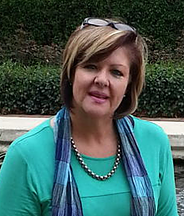“When one teaches, two learn.” ~Robert Half
Most parents wonder about the following:
- I want to give my child ‘the best’, but what does ‘the best’ entail?
- Am I doing too much or too little in certain areas of my child’s development?
- I know what my child CAN do, but since I don’t know what he CAN’T do yet, I don’t know what to teach him next!
These kinds of questions can only be answered by someone who has a
‘big picture’
of all the developmental areas.
The BIG PICTURE of a child’s development during the first 2 years:

Keep in mind that all of these areas develop simultaneously. No wonder it’s so easy to neglect some of them!
Luckily, the Practica Parents’ Guide tells you exactly what each of these areas of development involves, how your child will benefit if a particular area is well developed and which new developments you can expect in each of the above areas month after month and year after year. It also tells you which parent-and-child games to play as part of your lifestyle (when you bath, feed, and dress your baby) to help each and every one of these areas develop to its full potential at your child’s particular age. This is truly the BIG PICTURE!
It’s not a good idea to build a house without a plan. Similarly, it is easier to ensure maximum brain development in a child when one is familiar with all the areas of development, as well as what a typical child is ready to learn at every age with regards to each of them.
As mentioned, during the first 2 years you’ll be using age -appropriate fun and games to build the basic 14 areas of development as illustrated above . After that period, the focus of the play activities in the Parents’ Guide shifts to developing the school readiness skills.

The BIG PICTURE for the 2-7 year period:
The 50 School Readiness Skills
*Please note that we have divided the school readiness skills into 6 groups.
When you start using your programme, get into the habit of giving equal attention to the 6 groups of skills listed:
If your child is older than 2, make sure that you divide your attention equally amongst the 6 groups of games and activities listed in the Practica Parents’ Guide for children of his age. Before you know it you will have loads of fun together, and you will be dividing your attention equally amongst all the important areas of your child’s development without wrecking your brain or turning your life upside down!
Here’s how you will benefit from having the ‘big picture’:
Everything that your child will do academically, socially and on the sport field one day will demand of him to use certain combinations of the 50 school readiness skills listed above. By making sure ahead of time that he doesn’t struggle in any of the areas, you are ensuring that his potential won’t be undermined by one or two weak spots when he is older.
You will be able to focus your attention on doing things that count. You will know exactly where to start on each of the skills, how to progress from one milestone to the next, and how to measure progress and success.
Having the big picture helps you to grow in your parenting skills so that you can be more confident, relaxed and in control.
 Dr Arina Lanser says:
Dr Arina Lanser says:
I have literally tested thousands of children for school readiness during the two decades in private practice that preceded my involvement with the Practica Programme, which started in March 2008. To this day I still see large numbers of children in my private practice every year.
There is absolutely no doubt in my mind that parents who actively use the Practica Programme are exceptionally confident and well informed about their children’s needs and development, and that their children blossom as a result.
Every child is naturally born with a potential that is unique to himself. Nonetheless, I have never assessed a ‘normal’ child, whose parents have regularly played the Practica games since he or she was relatively young, who failed to test above average or superior in the standard battery of school readiness tests that is used throughout South Africa . I find that astonishing!
Some areas of development obviously test weaker than others, even in the most gifted children, but when I discuss these ‘weaker areas’ with Practica parents, they respond with insight and confidence, ready to grab the bull by the horns.
I’ve seen a slogan on one of Practica’s delivery vehicles that reads: “You can spot a Practica child.” I feel that I need to add: “You can spot a Practica PARENT!”
All I can say is that I find their positive confidence intensely refreshing.
Dr Arina Lanser,
Educational Psychologist
Independent Consultant to the Practica Programme
Roodepoort, Gauteng
